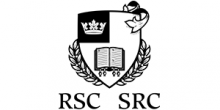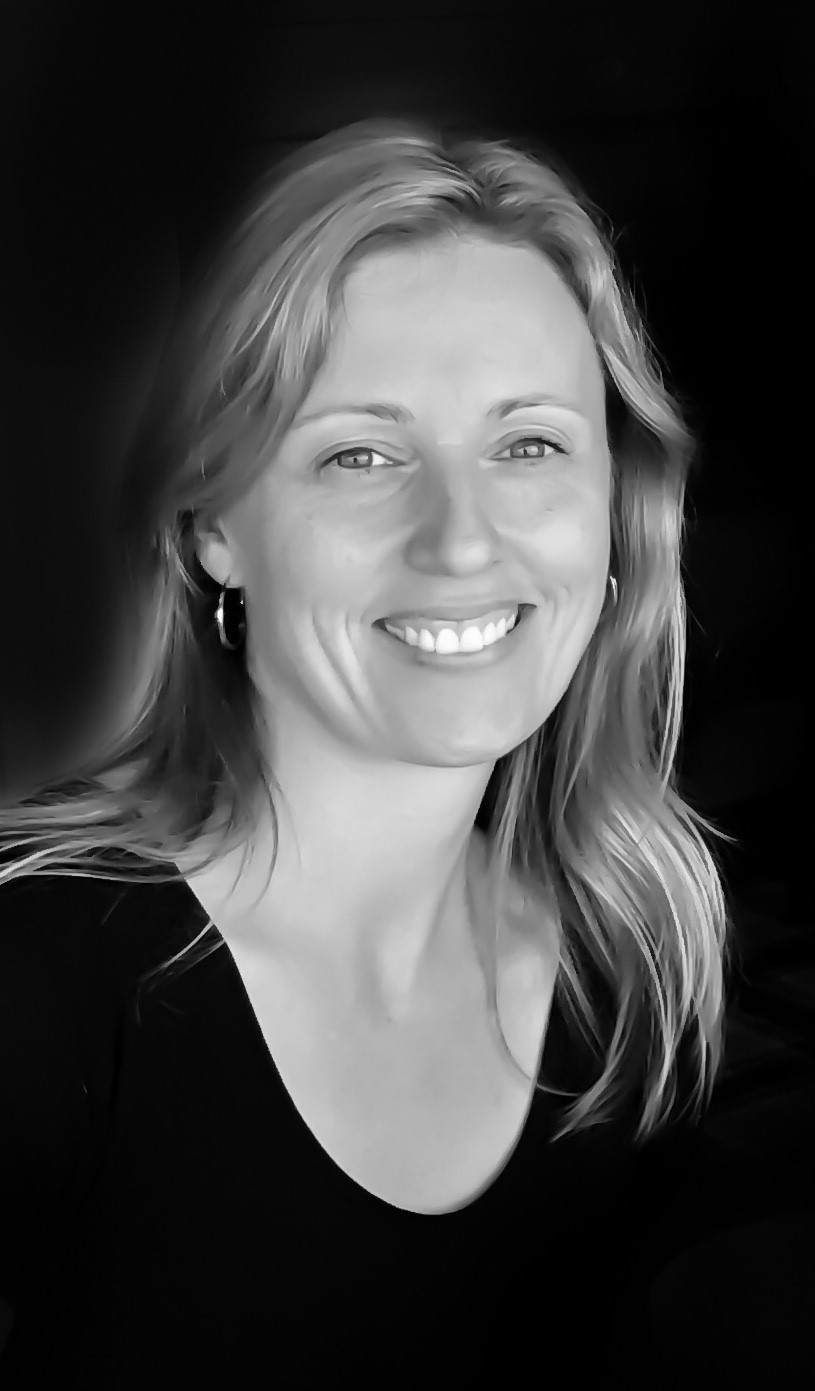S. Karly Kehoe
Canada Research Chair in Atlantic Canada Communities
Saint Mary's University
Learn About My Career
Karly is a university professor who uses history to study how the past affects community development and sustainable development today.
I was born/grew up in: I was born in Peterborough, Ontario and grew up in Margaree Forks, Nova Scotia
I now live in: Halifax, Nova Scotia
I completed my training/education at: Saint Mary's University, Nova Scotia, Canada, BA (Hons); University of Glasgow, Glasgow, Scotland, PhD
I carry out research on the religion, migration and minority identities of people in Atlantic Canada. This research is for benefit of communities of this area. I use history to understand how the past affects community development and sustainability today.
I am involved with a range of things through my work. I spend a lot of time reading research articles and books. I identify materials to explore in local, national, and international archives. I visit sites to explore historic settlements. I write books and articles, and present papers at conferences and seminars. I give public lectures. In terms of research projects, I manage a research team of between 12-14 people for funded research projects and international research teams.
There is also a teaching component to my work. I prepare and deliver courses that help students understand the significance of their local communities. Through these they learn how they can apply historical methods and training to real-world situations. I support and supervise students undertaking research. I write lectures, mark work, and oversee teaching assistants.
Public engagement is another major component to my job. I spend a lot of time ensuring that university-level research is accessible to rural communities. I run a program with Cape Breton high schools to help students understand what research looks like, and how it happens. I also work with heritage groups to help update interpretations.
Finally, science diplomacy is an ongoing part of the job. I am involved with several organizations that promote research collaborations across national borders and disciplines. I collaborate with colleagues around the world on migration research. I am a strong advocate for inclusive excellence and the plight of academics displaced due to war, conflict, and/or persecution. I attend international meetings and participate in panels and discussions. I lead workshops. I am the president of the Royal Society of Canada's College. I am an ambassador of Canadian research excellence at home and abroad.
Hard work is the long and short of it. I did all the required education and worked hard. I also did a lot of the jobs others didn't think were important or high-profile enough. I thought differently. I was the first in my family to go to university so my approach was different. I didn't fit it, so I made it fit me. So far, so good!
The most interesting aspect of my career is how I have connected my research on religious minority migration with present-day issues about migrant integration. I enjoy the freedom to design my own research agendas and to build research and activity teams. I am in this career by accident. I went on an exchange to Scotland in my 4th year, did really well, did a PhD there, and ended up in an academic job. I followed my interests. I wasn't super focused on the career, I was more interested in doing what I liked so long as it enabled me to pay the bills.
I love my job. It's fulfilling because the research that I do changes how people think about their communities. In turn, this helps them change what they are capable of doing. I help people to understand where they come from and how they might imagine new futures. I get people interested in thinking about things differently and collaborating.
I love interior design and reclaiming old buildings. I do a range of volunteer work. I run and walk my dog.
Work really hard and don't put all of your eggs in one basket. Don't assume anyone owes you anything - it's on you.
What I do at work
I carry out research on the religion, migration and minority identities of people in Atlantic Canada. This research is for benefit of communities of this area. I use history to understand how the past affects community development and sustainability today.
I am involved with a range of things through my work. I spend a lot of time reading research articles and books. I identify materials to explore in local, national, and international archives. I visit sites to explore historic settlements. I write books and articles, and present papers at conferences and seminars. I give public lectures. In terms of research projects, I manage a research team of between 12-14 people for funded research projects and international research teams.
There is also a teaching component to my work. I prepare and deliver courses that help students understand the significance of their local communities. Through these they learn how they can apply historical methods and training to real-world situations. I support and supervise students undertaking research. I write lectures, mark work, and oversee teaching assistants.
Public engagement is another major component to my job. I spend a lot of time ensuring that university-level research is accessible to rural communities. I run a program with Cape Breton high schools to help students understand what research looks like, and how it happens. I also work with heritage groups to help update interpretations.
Finally, science diplomacy is an ongoing part of the job. I am involved with several organizations that promote research collaborations across national borders and disciplines. I collaborate with colleagues around the world on migration research. I am a strong advocate for inclusive excellence and the plight of academics displaced due to war, conflict, and/or persecution. I attend international meetings and participate in panels and discussions. I lead workshops. I am the president of the Royal Society of Canada's College. I am an ambassador of Canadian research excellence at home and abroad.
My career path is
Hard work is the long and short of it. I did all the required education and worked hard. I also did a lot of the jobs others didn't think were important or high-profile enough. I thought differently. I was the first in my family to go to university so my approach was different. I didn't fit it, so I made it fit me. So far, so good!
I am motivated by
The most interesting aspect of my career is how I have connected my research on religious minority migration with present-day issues about migrant integration. I enjoy the freedom to design my own research agendas and to build research and activity teams. I am in this career by accident. I went on an exchange to Scotland in my 4th year, did really well, did a PhD there, and ended up in an academic job. I followed my interests. I wasn't super focused on the career, I was more interested in doing what I liked so long as it enabled me to pay the bills.
How I affect peoples’ lives
I love my job. It's fulfilling because the research that I do changes how people think about their communities. In turn, this helps them change what they are capable of doing. I help people to understand where they come from and how they might imagine new futures. I get people interested in thinking about things differently and collaborating.
Outside of work I
I love interior design and reclaiming old buildings. I do a range of volunteer work. I run and walk my dog.
My advice to others
Work really hard and don't put all of your eggs in one basket. Don't assume anyone owes you anything - it's on you.
When I was a student I enjoyed:
- Music
- Art
- History
- Literature and Language Arts
- Physical Education/Health
When I was a student, I would describe myself as someone who:
- Organized Activities for my friends
- Was motivated by success
- Liked being given free range to explore my ideas
- Was really creative
- Never wanted to be in the classroom
- Always threw the best parties
- Didn't really care about grades
- Liked to design or build things
- Learned best “by doing”
Partners
Royal Society of Canada
Let’s Talk Science appreciates the support of the Royal Society of Canada in connecting us with this individual.
The Royal Society of Canada is a member driven organization that recognizes Canada's leading scholars, researchers, artists and scientists from across disciplines and across generations in order to help build a better future in Canada and around the world. Let’s Talk Science and the Royal Society of Canada work together to provide timely content on issues that affect us all – from education to the impact of leading-edge scientific discoveries.

Related Topics
Explore More Career Profiles
-
Brianna Lummerding
Career Profiles
Agronomic Innovation Manager
I look after all things related to soil management for a group of retailers. -
Li Tan (he/him)
Career Profiles
Molecular Lead
I coordinate the day-to-day operations in the DNA Extraction Lab. -
Tyler Morhart (video)
Career Profiles
Scientist, Beamline Responsible - SyLMAND
I am responsible for the SyLMAND beamline at the Canadian Light Source synchrotron facility. -
Li Tan (Video)
Career Profiles
Molecular Lead
I coordinate the day-to-day operations in the DNA Extraction Lab. -

Rashell Featherstone (she/her)
Career Profiles
Senior Program Associate
I coordinate projects for the development of new products at STEMCELL. -

Kira Hoffman (she/her)
Career Profiles
Postdoctoral Researcher/Fire Ecologist
I am a researcher at both a university and a not-for profit organization where I am gaining experience to become a senior researcher. -
Zoë Ehlert (Video)
Career Profiles
Manager, Marker Assisted Breeding
I lead a team that develops canola crops by breeding plants with traits we are looking for. -
Zoë Ehlert
Career Profiles
Manager, Marker Assisted Breeding
I lead a team that develops canola crops by breeding plants with traits we are looking for. -
Jennifer Baltzer (she/her)
Career Profiles
Professor and Canada Research Chair in Forests and Global Change
I work at a university, teaching students and conducting research on the impact of climate change on forests in Canada and around the world. -

Caitlyn Lyons (she/her)
Career Profiles
Ph.D. Candidate
I am working towards my PhD and studying the forests in the Northwest Territories. -

Joann Whalen
Career Profiles
Professor at the Faculty of Agricultural and Environmental Sciences,
I teach advanced courses on how to manage soils to produce healthy, nutritious food and maintain healthy ecosystem functions.

